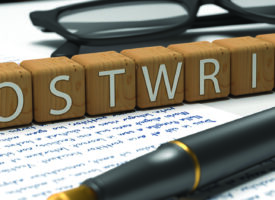One of the first questions I’m asked when people find out that I am a business copywriter is “How do you stay focused and productive working from home?”
Great question!
Working out of the home sounds like a dream come true to many people—and to be honest, I wouldn’t trade it for the world. I get to start and finish work whenever I want. The dress code is fairly relaxed. And, I get to make money without ever having to battle traffic on a morning commute. Yep, life is good!
Still, as with all good things, there are challenges that come along with working as a freelance writer in a home office.
I still have to show up or I don’t get paid. I miss the water cooler chats that used to give me energy periodically throughout the day. But most of all, I’m my own motivator and without a healthy dose of self-motivation, I fail.
Working out of the home requires that freelance writers stay focused. To help, here are five tips that help me be productive while making a living writing out of the house.
Get yourself organized
As a freelance writer, you juggle dozens of clients, deadlines, obligations, expectations, and communications. The lot of it all is overwhelming. Without a healthy dose of organization in your home office and freelance writing career, you may quickly see client relationship after client relationship fall to pieces.
Organization is critical to any freelance writing business. To help me stay organized, I keep a whiteboard with my upcoming invoices, a chalkboard for brainstorming, and a calendar that remains constantly updated with to-do lists and client obligations. I also keep a single document for each client with his or her expectations that I can always review prior to writing.
Use the 1, 2, 3 system
Once you’ve organized your overall business, you must also organize your to-do list. Keeping an organized
to-do list prevents you from overcommitting your time (which can steal away from the quality of your work), and still ensures that you complete all tasks on time or ahead of schedule.
One system that works really well for me is the 1, 2, 3 task list system. Each day before I call it quits, I look to the next day and outline which tasks must take priority. I label the tasks with the highest priority with a number 1. Then, I look at which tasks should get done tomorrow, but can possibly wait until the following day. Those get a 2. The tasks that get a 3 next to them are those that are nice to do, but not need to do.
Find your productivity zone
Each person works differently. Some people thrive in the wee hours of the morning, while others are night owls and crank out their best work well into the dark hours of the day. Me? I prefer the morning.
But time of day is not the only factor when it comes to productivity. Some people work better with rock music blasting in the background. Others (like myself) work best in a still, quiet office.
Then, there is your comfort level while working. Do you like to sit? Stand? Walk? I personally use a treadmill desk in my office. I walk at a slow speed while writing some of my best work. When I get tired, I stand. And when that becomes uncomfortable, I sit. Having an adjustable height desk and/or treadmill in your home office allows you to work however you feel most comfortable. Not to mention, it is a much healthier way to work.
Turn off distractions
When you’ve reached your productivity zone, it’s time to focus. This zone is temporary and must be taken advantage of while it lasts.
Turn off all distractions. To do this, I set my phone to ‘Do Not Disturb’ so that I’m not distracted by incoming emails, phone calls or text messages. Then, I put my computer in ‘Focus’ mode. This blacks out the entire screen so that I cannot see if a new
email arrives in my inbox, or be tempted to go to Facebook. When I turn off distractions, I really get in the productivity zone, cranking out quality work at a good speed.
Give yourself time off
All this talk about getting work done is great, but to really be productive, you need to take a break once in awhile. In the past, many believed that the more hours you put in, the more productive you were. While you do need to spend time working to make a dollar or two, spending too much time can actually hurt you in the long run.
Take time off. Whether you take midday breaks to go to the gym (like I often do), go on a bike ride to start your morning off right, or actually allow yourself a weekend or vacation, taking time off helps you be more efficient when you are at work. I’ve tested this theory and found that taking time off, works! Don’t be afraid to give yourself a break now and then.
There are dozens of productivity tips available for professionals. As a freelance writer, your gig is a little bit different. What other tips have you found to help you get productive in your home office?
About the author:
 Kimberly Crossland is a business copywriter. With a passion for online marketing, PR, and writing for the web, Kimberly started The Savvy Copywriter. Now, she creates buzz worthy content for small businesses.
Kimberly Crossland is a business copywriter. With a passion for online marketing, PR, and writing for the web, Kimberly started The Savvy Copywriter. Now, she creates buzz worthy content for small businesses.



